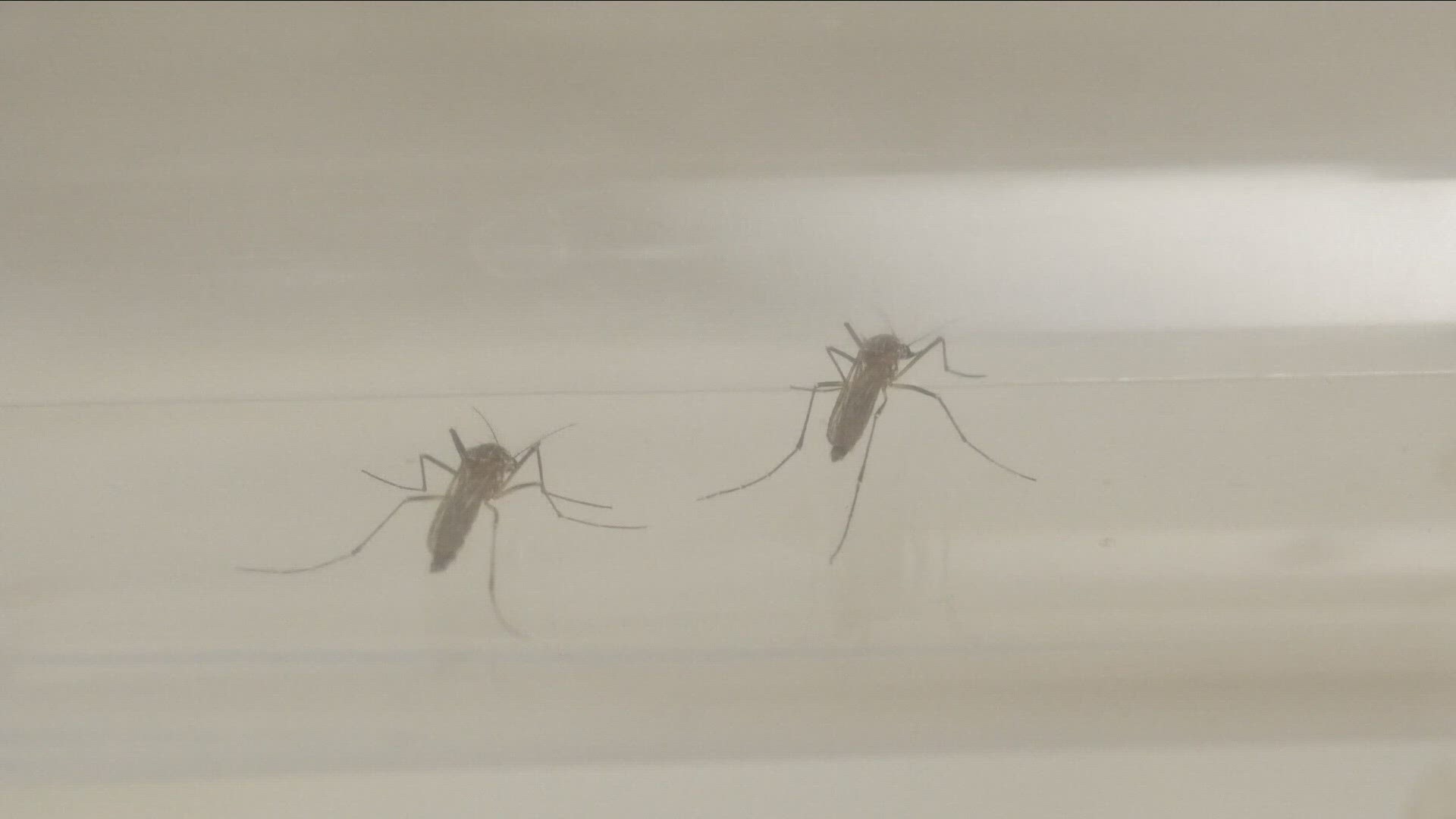BUFFALO, N.Y. — Does it seem like the bugs are biting a little less this year?
And could all that smoke from the Canadian wildfires we experienced last month be behind any of that?
2 On Your Side contacted some experts to weigh in.
We first reached out to the American Mosquito Control Association, which confirms there does appear to be a decrease in mosquitoes in these parts.
"Generally throughout the Northeastern U.S., I've seen reports for fewer mosquitos from our member districts in that part of the world," said Daniel Markowski, Ph.D., who serves as the agency's Technical Advisor.
Campers have long noticed that smoke their fires tends to keep bugs at bay.
In early June all of Western New York was under a cloud of smoke from the Canadian wildfires.
If the camp fire smoke bugs the bugs, then could the wildfire smoke have had a similar impact on a larger scale? Or could it have even killed them?
Smoke likely didn't kill off mosquitoes
"I would suggest the wildfire smoke certainly didn't kill any mosquitoes," Markowski said. "I don't think that would be an effect from it."
"I doubt that the few days of low AQI from wildfire smoke that we endured on and off over the past six weeks has had much if any effect on mosquitoes," added Dylan Parry, Ph.D., who is a member of the faculty of the department of Entomology at the SUNY College of Environmental Science and Forestry.
In an email, Parry suggested that what more likely bit the bugs were the weather conditions, which existed prior to when the smoke arrived.
"The low numbers of mosquitoes this year to date is almost certainly due to the small snow pack, early snow melt, and extended dry spring through all of May and the subsequent drought. The lack of standing water results in less places for breeding, and many of the most annoying human-biters are reliant on temporary pools, retention basins, and household items that hold rainwater for short periods of time, so we tend to notice the lack of these species," he said.
"Mosquitoes need water for their life cycle. That's fundamental to their entire life history," agreed Markowski. "Without standing water or even normal rainfall, you're going to see fewer mosquitoes."
Smoke gets in your eyes, and theirs
"There's not really any evidence that insect populations were suppressed to the point where they were dying from the smoke," said Floyd W. Shockley, Ph.D., F.R.E.S. Collections Manager, Entomology for the Smithsonian Institution National Museum of Natural History.
"It was a relatively short, transitory event, and they can hang on for periods of time if they need to," he said.
That is not to say, however, that the mosquitoes perhaps didn't find the smoke as annoying as some humans did.
"It actually does make it a little hard for them to breath if it's full of particulate matters, like the smoke from the Canadian wildfires was," said Shockley.
Which in part may explain why many insists that smoke from a campfire gets bugs to back off.
Parry noted in his email that, "we know that human-biting mosquitoes are attracted by CO2, body heat, and a combination of other volatile chemicals that all humans emit. Smoke has long been used as a deterrent, although the evidence of whether it actually deters them or just disrupts their ability to use scent cues is not well researched."
Shockley said smoke, if not a repellant, certainly could impact a mosquito's ability to successfully hunt for food.
"It's harder for them zero in on you," he said. "It provides a little bit olfactory camouflage, if you will, so it makes you harder to pick out in a cloud of smoke."
Like death and taxes ...
All three gentlemen who spoke to us agree on one other thing.
Now that we've had some wetter weather, and the temperatures have been nice an toasty, the mosquito population will be back in full force, if it hasn't occurred already.
"Now that the rains have returned and the rainfall deficit has been made up in much of the state, mosquito populations will likely rebound, especially in areas hard hit by excess rains the last few weeks," Parry said.

